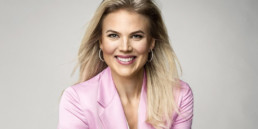I used to date a man who wouldn’t stop looking at his phone. I remember having lunch with him and thinking about how rude his behaviour was. It felt like he did not value our time together.
Now, years later, I notice that I keep editing an Instagram picture over lunch, browsing the news feed of Facebook and reading news off my phone screen. When I downloaded Snapchat a few months ago at the recommendation of a friend, I thought it was the most ridiculous app I’d seen. However, I still use it even today.
Over the past few months, I’ve been monitoring my behaviour on social media and noticed that the addiction comes slowly and treacherously.
I confess that I am currently hooked on my phone. HOW DOES THAT SHOW, WHAT DO YOU DO? I have excuses, such as spare time, which is typical addict behaviour. Sharing is part of the basic needs of any human, and I fulfil that need by sharing my everyday life on social media.
I now understand the man I used to date much better. He was also fulfilling his need of sharing his life with other people. It can be a deeply rooted habit which is hard to break.
The addictiveness of social media is based on the release of dopamine. Whenever I see new information in a neatly wrapped package, my brain releases the hormone.
It makes me click links time after time and to check if I’ve received any messages or e-mails. How many likes did my picture get on Instagram?
Positive comments release feel-good hormones and redirect me to the same page.
The problem is that social media is so easy and accessible. We can network without even getting out of bed. Our brain sees a stimulus which releases bursts of dopamine which, in turn, slowly transform us into addicts.
As the addictive dopamine system is stronger than the opioid system that makes us feel good, we end up always wanting more.
However, virtual relationships will never release the same amount of serotonin and oxytocin as genuine encounters. A Facebook like does not feel the same as heartfelt words, a hug, a smile or a touch.
Social media causes restlessness, lowers our capacity for work and hinders our relationships. It can be compared to empty calories: we know the harmful effects but find it difficult to fight the urge.
Change requires willpower and questions. Has your use of social media increased? Has a loved one remarked on it? Is social media affecting your mood?
I have been postponing my digital detox for a long time even though I know it would be good for me. Tomorrow, however, I plan to download an app that reveals how much time I actually spend on social media. Perhaps tangible numbers will be the kick I need to start my cleanse.
When it comes to dating, it must be a good sign when you meet someone so interesting that even your social media-addicted mind forgets about the phone for a while.
Tutustu Emilian uusimpaan kirjaan!
Aiheeseen liittyvät
Jooga nidra syvärentoutus
Yoga Nidra syvärentoutus on palauttava ja kehon energiaa herättelevä kokonaisuus. Yoga Nidra tarkoittaa tilaa hereillä olon ja unen välimaastossa.
Meditaatio. Miksi ja miten ja missä harjoittaa?
Meditaatio auttaa selkeyttämään joka päiväistä elämää ja nauttimaan nykyhetkestä.






